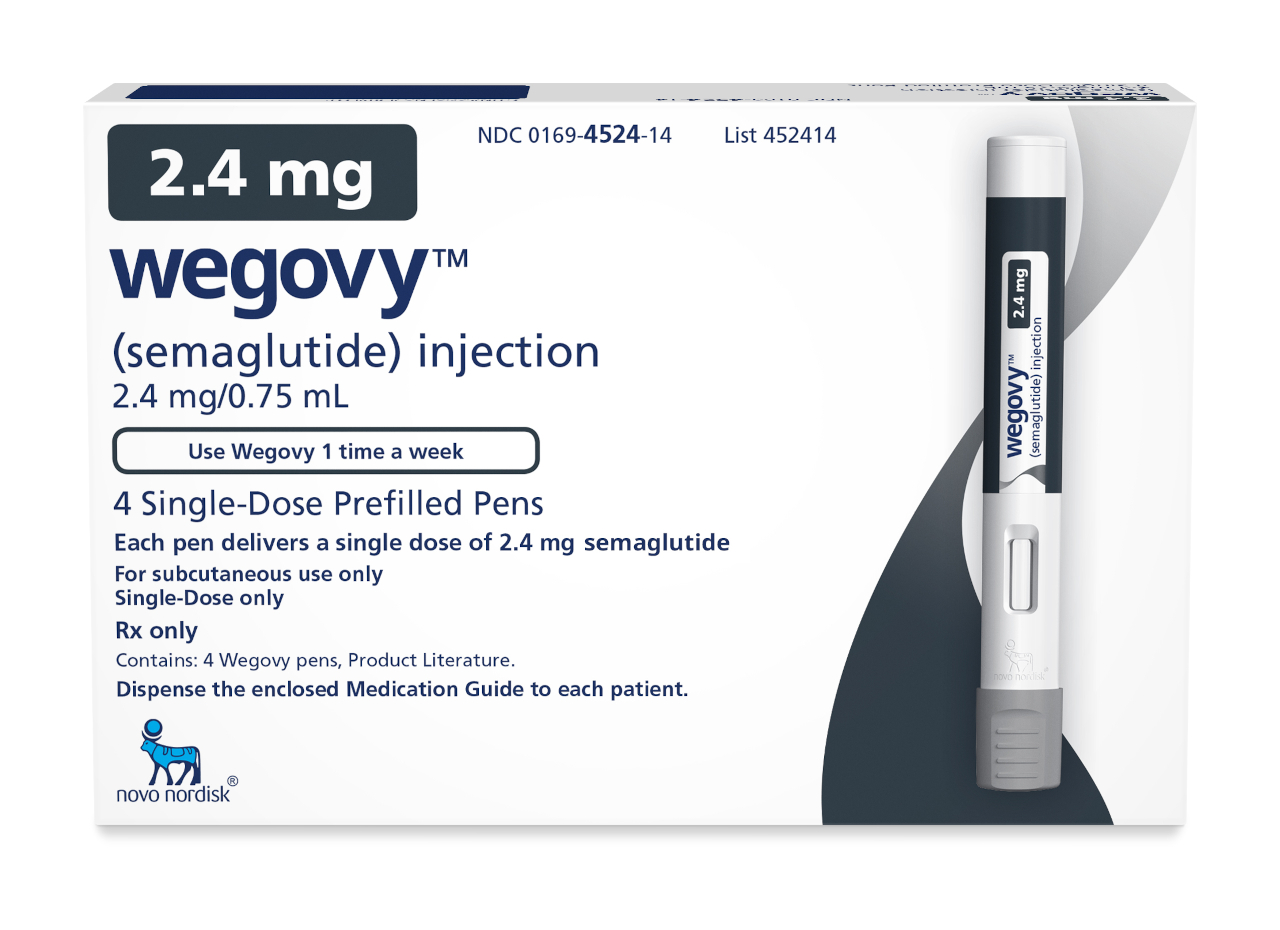
In recent years, the fight against obesity has seen significant advancements, with Wegovy (semaglutide) emerging as a leading player. Recent studies have demonstrated not only its effectiveness in sustained weight loss but also its potential in reducing cardiovascular risk.
Long-Term Weight Loss with Wegovy
1. Demonstrated Sustained Weight Loss
Wegovy has been proven to help patients achieve and maintain significant weight loss over an extended period. In the SELECT trial, participants maintained an average weight loss of 10% after four years of continuous use. This sustained weight loss is a breakthrough, given that weight loss typically plateaus after about 65 weeks but remains stable with continued treatment.
2. Impressive Trial Results
The SELECT trial revealed that 68% of participants lost at least 5% of their body weight, while 23% achieved a reduction of at least 15%, results that demonstrate significant and enduring weight management outcomes.
3. Comparative Data
Earlier trials indicated an even higher average weight loss of approximately 15% over 68 weeks. Although the SELECT trial, focusing on cardiovascular outcomes, showed a slightly lower average weight loss, this difference is attributed to variations in trial design and participant selection.
4. Safety and Tolerability
Wegovy's safety profile is solid, with common side effects including gastrointestinal issues such as nausea and diarrhea. Despite some patients discontinuing due to these side effects, serious adverse events were lower in the semaglutide group compared to placebo, primarily due to fewer major cardiovascular events.
FDA Approval for Cardiovascular Risk Reduction
1. Landmark FDA Approval
The FDA's recent approval of Wegovy to reduce the risk of major adverse cardiovascular events (MACE) is significant. This approval is based on the SELECT trial, which demonstrated a 20% reduction in the risk of MACE, including heart attack, stroke, and cardiovascular death, compared to placebo.
2. Cardiovascular Benefits Beyond Weight Loss
Cardiovascular benefits were observed even in participants who did not achieve significant weight loss, suggesting additional mechanisms of action, such as reduced inflammation and improved blood glucose control.
3. Implications for Treatment
This approval represents a significant advancement in treating patients with obesity and cardiovascular disease, providing a new, effective option to reduce cardiovascular risk. The new indication is expected to lead to broader insurance coverage and increased accessibility for patients, although cost and supply challenges persist.
Addressing the Cost Barrier
1. The High Cost of Wegovy
Despite its benefits, the high cost of Wegovy remains a significant barrier to widespread adoption. In the United States, Wegovy's list price is approximately $15,600 per year, which can be a substantial financial burden for many patients. Even with insurance discounts, the cost can be prohibitive.
2. Impact on Healthcare Systems
The financial impact of these drugs on health insurers and governments is substantial. High prices could limit access to those who most need the treatment, potentially leading to inequalities in healthcare. The argument for making these drugs more affordable is strong, especially given the broader health benefits they offer, including reduced cardiovascular risks and potential improvements in conditions like kidney disease and dementia.
3. Calls for Price Reductions
There have been increasing calls for pharmaceutical companies to reduce the prices of these essential medications. Senator Bernie Sanders has highlighted the need for price reductions, suggesting that the cost in the U.S. should be aligned more closely with lower prices seen in other countries like Denmark.
4. Outlook
As the benefits of Wegovy become more apparent, the friction between its effectiveness and affordability will likely push for a more sustainable pricing model. Innovative pricing strategies and cost-spreading deals are being discussed to make these life-changing drugs accessible to a broader population.
Summary
Wegovy's dual benefits of sustained weight loss and significant cardiovascular risk reduction make it a valuable treatment option for patients with obesity and cardiovascular disease. The recent FDA approval marks a milestone in obesity management, promising to enhance the quality of life for many patients while addressing critical health risks associated with obesity. However, for Wegovy to reach its full potential and benefit those who most need it, the cost barrier must be addressed. Lowering the price and improving accessibility will ensure that more individuals benefit from treatment, which will contribute to better public health outcomes.
Frequently Asked Questions
What is the recommended dose of Wegovy for the most significant weight loss effect?
The most significant weight loss effect was observed with a 2.4 mg dose of Wegovy, which is why it received FDA approval, unlike Ozempic, which has a maximum dose of 2 mg.
How does Wegovy compare to other weight loss medications on the market?
Wegovy has shown superior long-term weight loss and cardiovascular benefits compared to many other weight loss medications, making it a leading option in obesity management.
Can Wegovy be used by individuals without cardiovascular disease?
Yes, Wegovy can be used by individuals without cardiovascular disease and is primarily indicated for weight management in adults with obesity or overweight conditions.
What lifestyle changes should be made while taking Wegovy?
Patients taking Wegovy are advised to adopt a healthy diet and increase physical activity to maximize weight loss and overall health benefits.
How is Wegovy administered?
Wegovy is a once-weekly subcutaneous injection by way of a single-use pre-filled disposable pen. Patients should follow their healthcare provider's instructions on dosage and injection technique.








